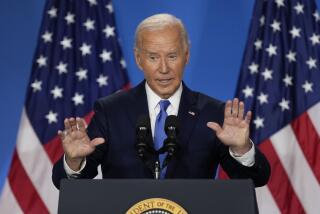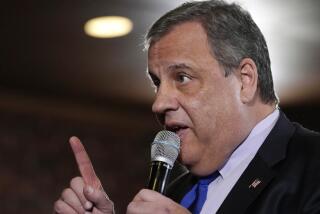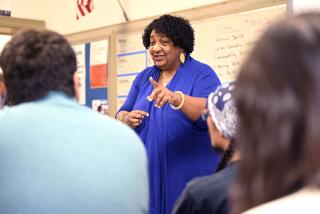Perot May Keep His Name on State Ballots
- Share via
DALLAS — Backpedaling somewhat only a day after quitting his independent presidential bid, Ross Perot said Friday night that he will allow his name to remain on the November ballot if that proves to be the wish of his supporters.
“It’s not appropriate for me unilaterally to take my name off,” Perot said, thus injecting a new element of uncertainty about his intentions.
The Texas billionaire rocked the nation Thursday by abruptly abandoning his candidacy before he ever announced it, saying that he had become convinced he could not win and that his presence would only ensure that no candidate could win an Electoral College majority.
At the same time, he urged supporters to continue their petition drives as a way to demonstrate their discontent with the Republican and Democratic parties.
Some supporters felt angry and betrayed by Perot’s withdrawal, but others said they would stage marches and rallies to persuade him to change his mind.
In his Friday night interview with Barbara Walters on ABC-TV’s “20-20,” Perot also disclosed that his supporters are scheduling a mass march in Washington on Labor Day and have invited both President Bush and Arkansas Gov. Bill Clinton, the Democratic nominee, to address the rally.
Both Bush and Clinton moved quickly to court Perot supporters after the tycoon announced his withdrawal.
Perot has been certified for the November ballot in 23 states, and certifications are pending in eight other states. In California, his petitions have been validated, but he will not be certified for the ballot unless his 54 electors all file declarations with Secretary of State March Fong Eu. Eu says only 38 Perot electors have declared.
Perot told Walters that he will not decide whether to take formal steps to remove his name from the various state ballots until after he has consulted with his volunteer leaders.
“I will talk to all the volunteer leaders as a group soon,” Perot said, noting that they put his name on the ballots. “And we will visit and decide whether or not the responsible thing--see, they put my name on. . . . “
Perot added: “If the volunteers feel the appropriate thing to do is to take the name off the ballot, then the name is off the ballot and you cannot get it back on.”
Ironically, Perot never consulted with his volunteers before announcing his withdrawal from the race. He left his campaign headquarters without saying a word to his stunned volunteers who were staffing his telephone bank. Perot left that task to Tom Luce, a senior adviser.
In his interview with Walters, Perot said he was not bothered by criticism from some quarters that he was a “quitter” who abandoned his ardent supporters.
Perot, who never formally declared his candidacy, also struck a cynical note when Walters asked him how he now feels about politics.
“The political process to select a President has nothing to do with picking a good President,” Perot said. “It has everything to do with keeping people who might be qualified from ever wanting to get within a thousand miles of it--because of the nature of the process.”
The Walters interview was taped Friday afternoon in New York but broadcast Friday night.
Also on Friday night, Perot was to appear on CNN’s “Larry King Live,” taking questions from callers from around the country. It was on the King show Feb. 20 that Perot opened the door to a presidential bid, igniting a grass-roots response that reshaped the political landscape.
Earlier in the day, Luce, Perot’s campaign director, appeared on a C-SPAN call-in show and got an earful from newly alienated Perot supporters.
“I’m made as hell that he dropped out,” one caller snapped. As a result, she told Luce, “many people I know aren’t even going to vote this year.”
Luce, looking haggard after a week of crisis and turmoil in the Perot campaign, urged such callers to take solace in the belief that, even with Perot out of the race, they have changed the system.
“I think what has been done is progress,” Luce said. “I believe Mr. Perot did what he did based upon good faith . . . (and on) what’s best for the country.”
More to Read
Get the L.A. Times Politics newsletter
Deeply reported insights into legislation, politics and policy from Sacramento, Washington and beyond. In your inbox twice per week.
You may occasionally receive promotional content from the Los Angeles Times.










